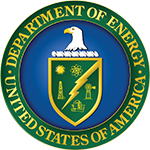Pittsburgh, PA

This session provides introductory information concerning energy and water tracking and reporting for performance metrics. Discussion will be focused on energy and water performance metrics at federal locations (buildings, campuses, and military installations). Details concerning dashboards and performance metrics analysis will be presented, covering topics such as dashboards, identification, tracking, and briefing on energy and water performance metrics. Subject matter experts will also provide best practices for energy and water performance metrics management, allowing attendees to take some beneficial practices back to their agency for potential implementation.
Instructors
Jennifer Faupel, Energy Manager, U.S. Department of State Read Bio
Ms. Faupel leads the State Department's Bureau of Overseas Buildings Operations effort to centrally collect, store and analyze utility information from overseas embassies and consulates to identify and prioritize implementation of energy conservation measures. Previously, as Director of Engineering for Pepco Energy Services, she led multiple engineering teams in development and implementation of Energy Services Performance Contracts. As Energy Manager for Fairfax County Government, she implemented an energy management plan reducing energy consumption by 1% per square foot per year through capital renewal projects. Analysis of her projects led to present her findings as a speaker at the World Energy Engineering Conference in 2010 and author the technical paper HVAC Equipment Right-Sizing: Occupant Comfort and Energy Savings Potential, published in the 2012 Association of Energy Engineers Journal. Over 30 years of experience in design, construction and facility management roles allows her to bring a holistic approach in developing sustainable projects.
Chris Tremper, Program Analyst, FEMP Read Bio
Chris Tremper has more than 25 years of experience providing analytical support to the U.S. Department of Energy's Federal Energy Management Program (FEMP). From 1990 to 2008, he managed multiple energy analysis contracts supporting FEMP, the U.S. Department of Agriculture, the U.S. Department of Homeland Security, and the U.S. Forest Service. He has developed and implemented energy data reporting protocols that have endured for more than a generation, accommodating the evolving needs and policy goals during that time. Tremper joined FEMP as a federal government employee in 2008. Most recently, he provided key data and analytical support to the White House Council on Environmental Quality to help frame new federal goals and assisted agencies in revising greenhouse gas reduction targets under Executive Order 13693. Tremper has a bachelor's degree from Wittenberg University in Springfield, Ohio.
Mary Tidlow, Program Analyst, Energy Division, U.S. General Services Administration Read Bio
Mary Tidlow has over 26 years experience working in the federal government, first as an architect in the National Park Service and more recently working for GSA tracking energy reporting. She enjoys finding new ways to leverage data from various enterprise systems to meet legislative requirements and to support her GSA energy team as they weave those legislative requirements effectively into the agency goals, regional competitive score cards, at the project implementation and building manager level to effectively 'energize' the agency culture.
Emily Larsen, Energy Metrics & Reporting Analyst, Department of Defense, U.S. Navy TYCOM Read Bio
Emily Larson is an analyst supporting the Navy on driving progress towards federal and enterprise energy goals. She has supported multiple change management initiatives centered on the adoption of technology solutions to improve data reporting across Navy Installations. Ms. Larson has a background in mechanical engineering and has worked on energy infrastructure projects, research, and the development of energy metrics and reporting with multiple government agencies including the Department of the Navy, the Department of State Bureau of Energy Resources, and the Department of Energy.
Learning Objectives
Upon completion of this course, attendees will be able to:
- Identify how to utilize dashboard and perform data analysis for energy and water tracking and reporting;
- Recognize how to brief energy and water performance metrics to leadership;
- Identify best practices for energy and water performance metrics management;
- Recognize the importance of resource alignment (funding, policy changes, process changes).









